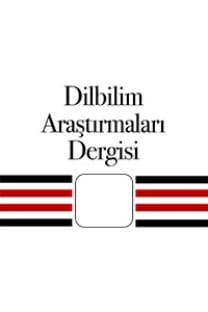Türkçe'de Durum Değişikliği Eylemlerinin Kılınış Özellikleri
This paper analyzes aspectual characteristics of change of state verbs, specifically "degree achievements," based on gradable adjectives in Turkish. In terms of temporal properties, these verbs display variable behaviour: they can refer to either telle or atelic situations. Adopting the approach developed by Hay, Kennedy and Levin (1999), the reason of this ambivalence is searched in the gradable nature of the base adjectives which define a scale. It is the (non)boundedness of this scale that determines (a)telicity of the situations which is maintained by the deadjectival degree achievements. This paper also illustrates the effects of linguistic materials (degree modifiers, measure phrases) and contextual interpretations on the (a)telicity of these deadjectival degree achievements .
___
Abusch, D. (1986). Verbs of Charge, Causation, and Time. Report 86-50. Stanford: CSLI.Bertinetto, P.M., Squartini, M. (1995). An attempt at defining the class of 'gradual completion verbs'. P.M. Bertinetto ve dig. (haz.) içinde, Temporal Reference Aspect and Actionality, I: Semantic and Syntactic Perspectives, 11-26. Torino: Rosenberg and Sellier.
Cruse, D.A. ( 1986). Lexical Semantics. Cambridge: CUP.
Declerck, R. (1979). Aspect and the bounded/unbounded (telic/atelic) distinction. Linguistics, 17, 761-794.
Dowty, D. (1979). Word Meaning and Montague Grammar. Dordrecht: Reidel.
Hay, J., Kennedy, C. ve Levin. B. (1999). Scalar structure underlies telicity in "degree achievements". Proceedings of SALTIX, 127-144.
Jackendoff, R. (1996). The proper treatment of measuring out, telicity, and perhaps event quantification in English. Natural Language and Linguistic Theory, 14, 305-354.
Kenny, A. (1963). Actions, Emotions, and Will. London: Routledge & Kegan Paul.
Kennedy, C. (1999). Projecting the Adjective: The Syntax and Semantics of Gradability and Comparison. New York: Garland.
Kennedy. C., McNaIIy, L. (1999). From event structure to scale structure: Degree modification in déverbal adjectives. Proceedings of SALT IX, 163-180.
Kenney, C., Beth. L. (2000). Telicity corresponds to degree of change. Michigan State University, izlek. www.ling.nwu.edu/~kennedy/.
Kennedy, C., McNaIIy, L. (2002). Scale structure and the semantic typology of gradabale predicates. Language dergisinde yayınlanacak, www. ling.nwu.edu/~kennedy/.
Klein, E. (1991). Comparatives. A von Stechow ve D. Wunderlich (haz.) içinde, Semantik. Berlin: Mouton de Gruyter.
Klein, E. (1997). Adverbs of Degree in Dutch. Groningen: Rijkuniversiteit Groningen.
Krifka, M. (1998). The origins of telicity. S. Rothstein (haz.) içinde, Events and Grammar. 197-236. Dordrecht: Kluwer.
Lasersohn, P. (1995). Pragmatic halos. Language, 75, 522-551.
Nakipoğlu, M. (2000). On the aspectual properties of unaccusatives. A. Göksel ve C. Kerslake (haz.) içinde, Studies on Turkish and Turkic Languages, 67-74. Wiesbaden: Harrassowitz.
Olsen, M. (1997). A Semantic and Pragmatic Model of Lexical and Grammatical Aspect. New York: Garland.
Ramchand, G. C. (1997). Aspect and Predication. Oxford: Clarendon.
Seuer, P. (1978). The structure and selection of positive and negative gradable adjectives. Papers from the Parasession on Lexicon. 336-346. Chicago: Chicago University.
Tenny, C. (1994). Aspectual Roles and the Syntax-Semantics Interface. Kluwer: Academic publishers.
Vendler, Z. (1967). Linguistics in Philosophy. Ithaca: Cornell University Press.
Yule, G. (1996). Pragmatics. Oxford: Oxford University Press.
Wechsler, S. (2001). An analysis of resultatives under the event-argument homomorphism model of telicity. Proceedings of the 3rd Workshop on Text Structure. Austin: University of Texas.
Wyngaerd, G. (2001). Measuring events. Language, 77, 61-90.
- ISSN: 1300-8552
- Yayın Aralığı: Yılda 2 Sayı
- Başlangıç: 1990
- Yayıncı: Dilbilim Derneği
Sayıdaki Diğer Makaleler
Recent Findings on the Biological bases of Language
Language (L2) Competency in Reference to Sex Differences
Aile İçinde Şiddete Uğramış Hasta Çocuk ile Sağlık Ekibi Arasındaki İletişim
Türkçe'deki Seslerin Süre Özellikleri
Grapes, Banana, Juice, and Yes: Elements of Language in Non-human Primates
Türkçe'de Durum Değişikliği Eylemlerinin Kılınış Özellikleri
